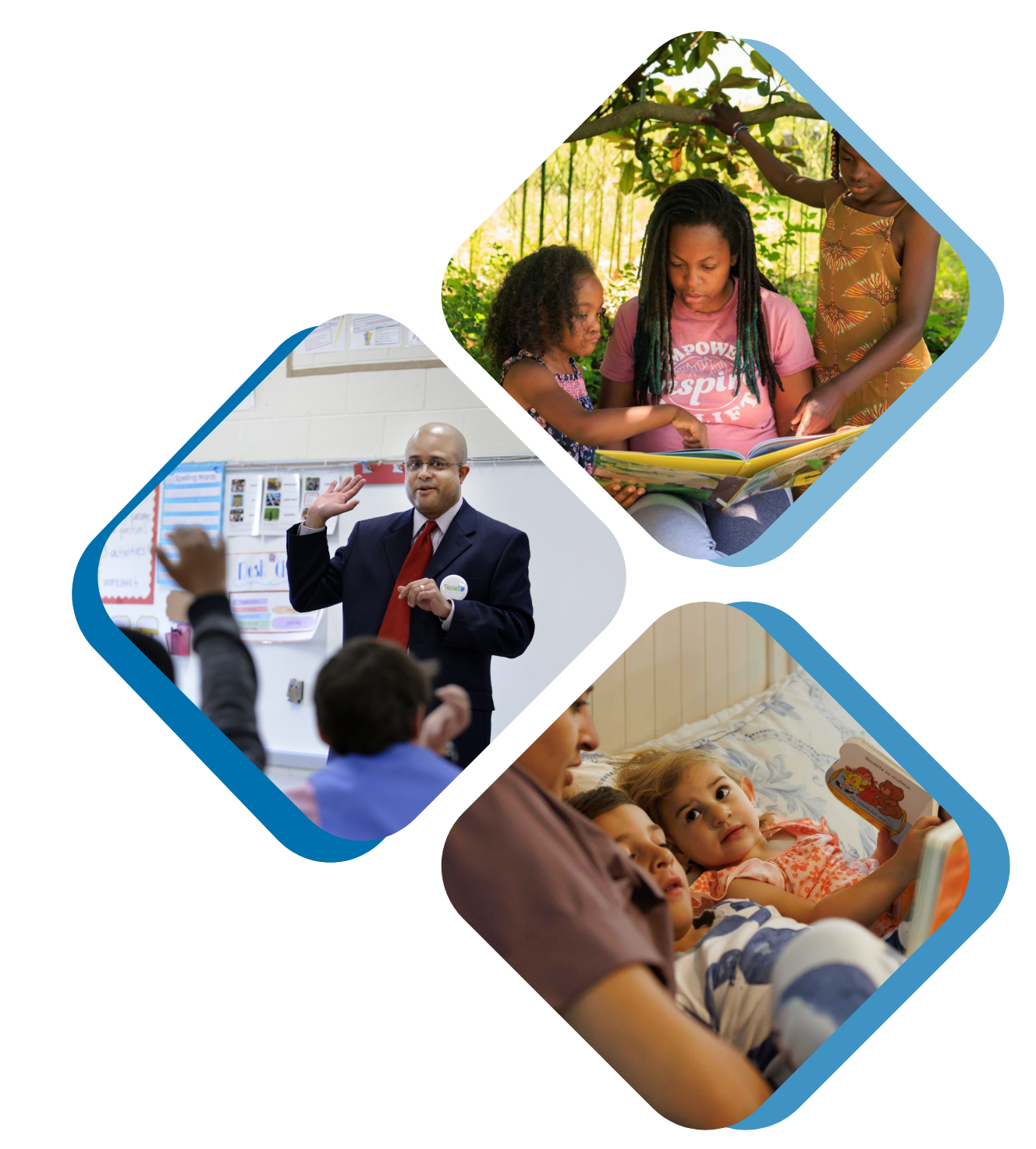Developing strong listening comprehension skills during, and beyond, the early elementary grades will support students’ reading comprehension ability. Learn about, teach, and assess listening comprehension using the Read Charlotte Listening Comprehension Resource Center.

The Knowledge Base offers a curated set of recent evidence-based research findings intended to help practitioners better understand listening comprehension and its connection to other literacy skills (such as word reading, reading fluency, background knowledge, and reading comprehension).
Filter by listening comprehension skill, grade, and/or standard (NC ELA Anchor Standard an/or NC PK Early Foundations for Early Learning and Development), to find resources to target listening comprehension in the classroom.
Listening comprehension is one of two primary processes that contribute to successful reading comprehension. Teaching these skills early, intentionally, and concurrently with word reading, can develop strong reading comprehension.
Listening Comprehension is comprised of a set of higher- and lower- level language skills. The higher-level language skills include: inference, perspective-taking, reasoning, comprehension monitoring, and text structure knowledge. The lower-level language skills are: vocabulary, and grammatical/syntactic knowledge. Learn more and find resources aligned to each skill below.
Read Charlotte is a community literacy initiative that unites educators, community partners, and families to improve children’s reading from birth to third grade.
We don’t run programs. We are a capacity-building intermediary that supports local partners to apply evidence-based knowledge about effective reading instruction and interventions, high-quality execution, continuous improvement, and data analysis to improve reading outcomes.
Read Charlotte is a civic initiative of Foundation For The Carolinas.

Sign up and we’ll update you as we add new resources to support your classroom listening comprehension instruction.
Share your feedback on the Listening Comprehension Resource Center